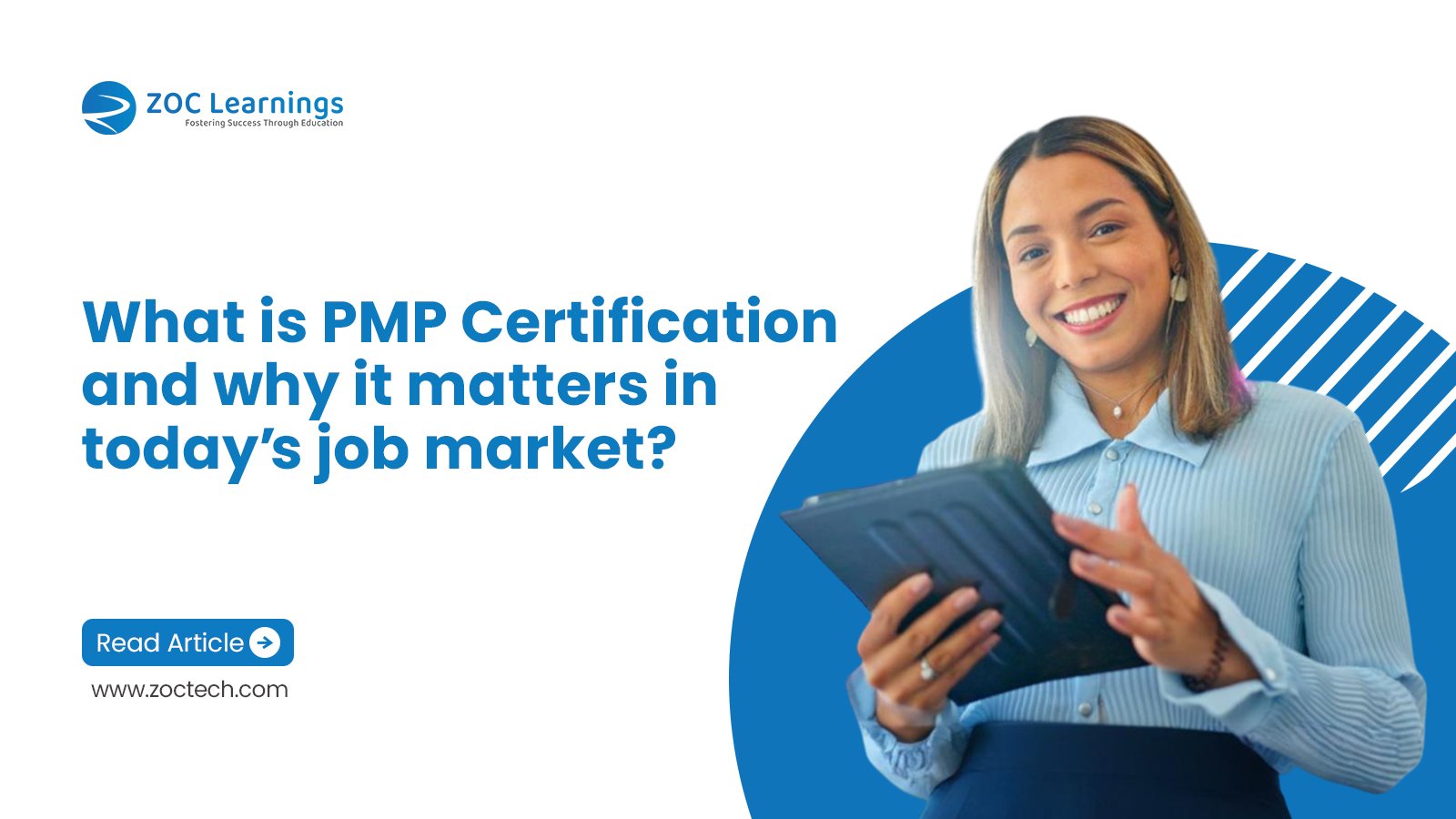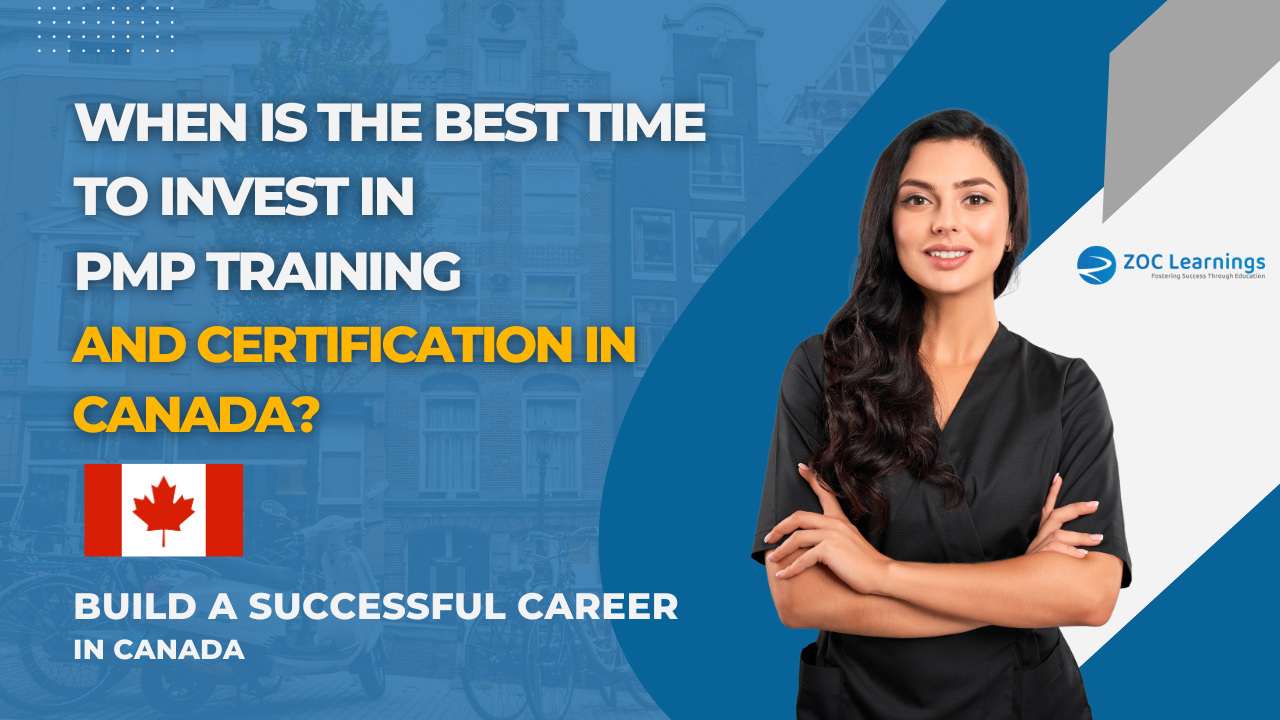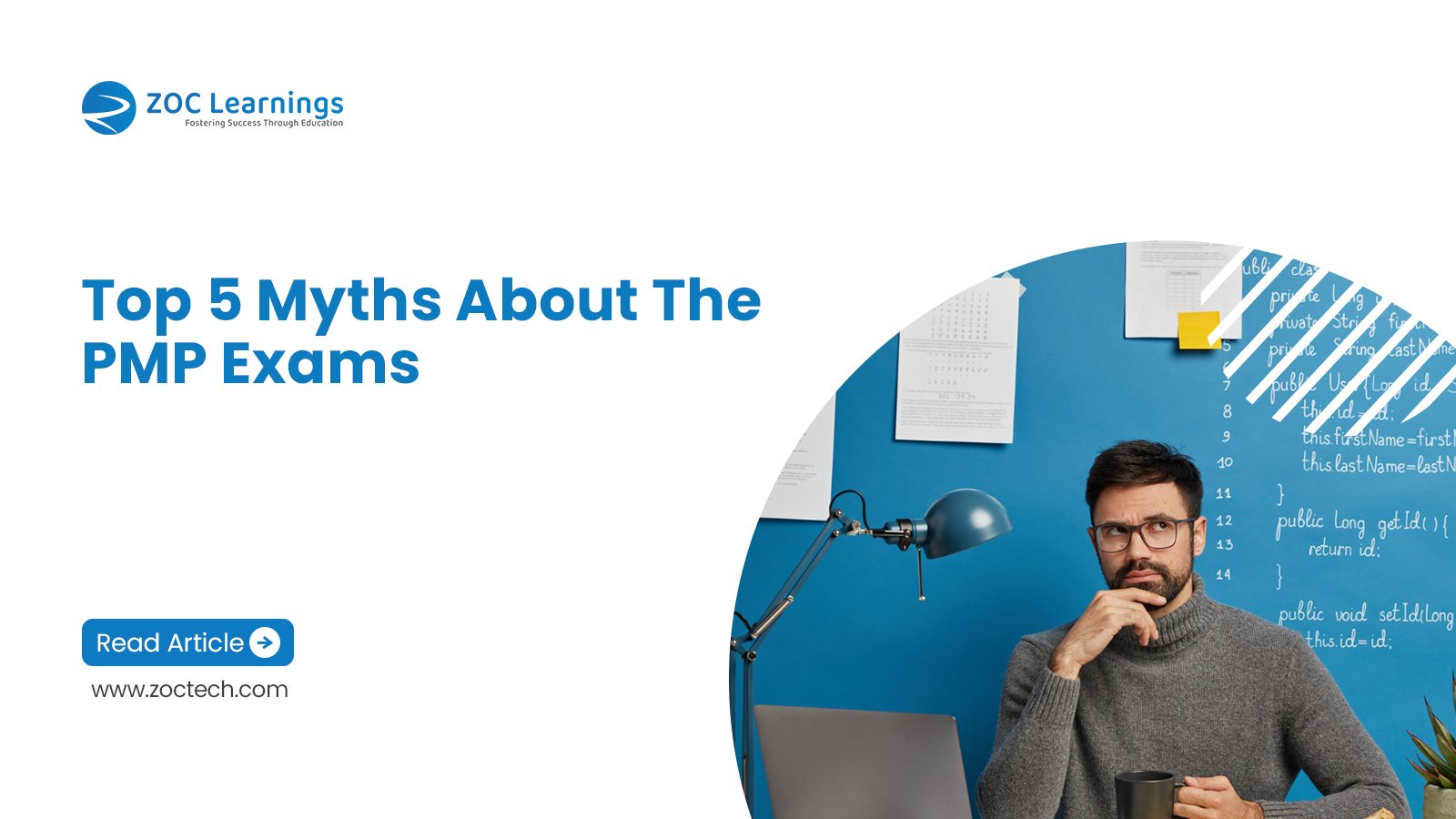Project Management Certification is a must if you are looking to move up in your career or stand out in a crowded job market, then PMP certification might be exactly what you need. It is not just a line decorating your CV; it shows employers that you have got the skills to lead projects and get results. In a society where companies are routinely searching for people who should be able to handle responsibility and provide results on schedule, PMP Certification for career development is becoming of more importance. Let’s take a detailed look at why it really matters.
PMP Certification Full Form
The certification PMP stands for Project Management Professional. PMP is a globally respected credential that primarily indicates you have adequate project management skills. The certification is an indication of project management effectiveness and is to show you have the knowledge, competency, and experience to lead teams to successfully deliver projects. Offered by the Project Management Institute (PMI), it proves that you have the skills, experience, and knowledge to lead teams and deliver successful projects.
It is built on proven methods and best practices outlined in the PMBOK Guide, which makes it a reliable standard across industries. Regardless of the field you are in, whether it’s IT, construction, healthcare, or business, Project Management Certification can be your passport to better positions, and more money.
However, achieving the certification is not an easy task. You must satisfy the education and experience requirements, take an exam, and agree to abide by PMI’s professional code. But the reward is worth it. It opens doors, builds trust with employers, and shows you’re serious about your career in project management.
If we put it simply, PMP Certification tells the world that you can lead projects with purpose.
The Evolution of Project Management Certification
Project Management can be traced back centuries, but the format in which we apply the concepts has changed drastically. In the beginning, large, complex projects (such as pyramids and bridges) were accomplished using traditional planning tools and with a great deal of manual labor. However, it was not until the middle of the twentieth century that it started to take form as structured project management. In the 1950s, industries began to apply formal approaches to organizing a complex project. The US Navy created a tool called PERT in order to plan for the Polaris missile project, which had many uncertainties.
At roughly the same time, DuPont, a private organization developed the method of CPM to create construction projects with more certainty in schedules and costs. Both of these tools allowed managers to take projects and break them down into tasks more effectively track them.
In the 1960s and 1970s, the advancements in computer technology and sophistication led to enhanced project management tools. Governments and industries started using these tools for big projects, like space exploration and defense programs. The rise of personal computers in the 1980s made project software cheaper and easier to use, which helped more businesses to adopt project planning tools.
By the 1990s, project management was no longer limited to large organizations. Companies across industries began using it to improve efficiency and meet goals. The internet later made collaboration much easier. Now, project teams in different locations can update tasks and share documents in real time. With digital tools and global connectivity, project management has become more flexible, fast, and essential than ever before.
Why Project Management Certification Matters in Today’s Job Market
Recognized Across Industries
Project Management Certification India holds value in industries ranging from information technology and finance to healthcare, construction, manufacturing, and beyond. This general recognition makes a flexible credential for project managers from various industries. When someone is PMP-certified, employers can trust that this individual was taught best practices recognized worldwide and is capable of running projects in a logical, recognized way.
Builds Professional Credibility
When you add this credential to your CV, you are immediately showing potential employers you’ve spent the time obtaining a thorough understanding of your craft. It also demonstrates a level of commitment to high standards and continuous personal development. PMP-certified professionals are often seen as trustworthy leaders who can motivate teams, deliver positive results and professionally uphold ethical integrity under pressure. It is a strong way to show that you are serious about the role you play and ready to take on more responsibility.
PMP jobs in Pune
PMP certification for job can be a game changer for your career. It opens the door to new roles that may have previously been out of reach, such as project director, program manager, or portfolio lead. With this credential, you are more likely to be considered for senior-level positions and projects that require strategic oversight. Additionally, many employers associate PMP certification with a higher salary bracket, making it easier to negotiate better pay and benefits. Whether you are looking to climb the ladder within your current company or make a bold move in a new industry, PMP can give you the momentum you need.
Creates Global Opportunities
One of the strongest benefits of PMP certification is its international appeal. Because it is governed by the Project Management Institute (PMI), which is a globally respected organization, the credential is recognized in over 200 countries. The certificate makes it easier for professionals to apply for jobs abroad, work remotely for international companies, or join cross-border project teams. With business becoming increasingly global, having a qualification that speaks a universal project management language can be a huge advantage. It allows you to move beyond local limitations and explore career paths that span continents.
Encourages Lifelong Learning
Project Management certification is not just about getting a piece of paper; it is a commitment to staying sharp and relevant. To maintain your status, you are required to earn Professional Development Units (PDUs) regularly, which means keeping up with the latest trends, tools and techniques in project management.
This ensures that PMP holders do not just rest on past knowledge but also continue to evolve with the profession. It keeps you competitive in an ever-changing job market and helps you stay ahead of the competition. It makes you a dependable resource for any organization looking for growth and change.
Why Choose ZOC Learnings for Project Management Certification?
Choosing the right place to get your PMP certification for a job can make all the difference, and that is where ZOC Learnings stands out. We combine expert guidance, global recognition, and genuine support to help you move forward in your career with confidence.
Our training program offers everything you need in one package. From detailed course material and real-time sessions to a globally recognized certificate of participation, everything is included. You will get access to the latest PMBOK guide and a full year of learning resources like mock tests, case studies, and eBooks to help you prepare thoroughly.
What sets us apart from others is our commitment to your success. Our trainers are experienced professionals who host live and interactive sessions, which gives you the flexibility of online classes with the personal touch of a classroom. We also provide 35 PDU hours to meet PMI requirements, so you are on the right track from day one.
We offer competitive pricing with no hidden costs. If you ever find a better deal elsewhere, we will match it. Plus, we back our training with a money-back guarantee if you are not satisfied. From career mentoring to corporate training solutions, ZOC Learnings is here to support your goals.











